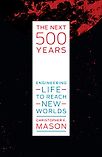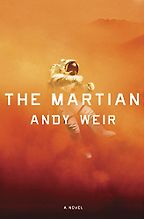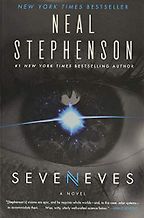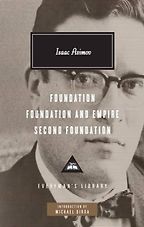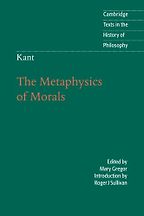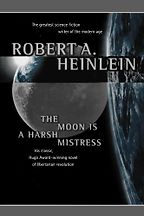You’re interested in the kind of space travel—living on the moon, visiting Mars, leaving our solar system—that’s very much the stuff of science fiction, but in your view it’s something we actually have to do; it’s a categorical imperative. Why?
All moral questions become exquisitely clear through the lens of one billion years in the future. That is when the sun will start to get too hot, and it will become almost impossible for us to stay on Earth. After about 4.7 billion years, it’s going to be impossible, because the sun will engulf the inner planets and probably be very close to the Earth. So, we know that Earth is finite, and that life on Earth is almost certainly finite, but the life Earth gave birth to doesn’t have to end with this planet. There are other systems that we can go to.
I think it’s only a question of when, not if, we leave the solar system. There are companies and groups trying to make it happen as fast as possible. Many people have written about what they hope will happen in thousands of years or even hundreds of thousands or millions of years. I wrote my book about the next 500 years. It is science fiction, because it’s in the future, but it will be listed in nonfiction because everything in it is based on what we know today in science. Every chapter is written based on datasets that we use or have generated in our own lab, or on scientific principles that we know function today to enable adaptations to live on other planets and potentially other solar systems. That’s the technical part.
The duty part comes from the cosmological fact that suns come and go but, as far as we know, life does not. To our knowledge, this is still the first and only planet that has complex life or any life. It’s also the only planet that has a conscious life. A key factor that only humans have, as far as we know, is awareness of extinction. Extinction means not just having one thing die, or 10 things die, but the loss of species or many species or even a planetary-scale extinction. If you do nothing, you have abrogated the duty that your awareness affords. We’re the only ones that understand it—we’re even causing it a little bit. That’s another problem, but it’s a different problem. But it means we’re the only ones that can prevent it by moving life to another planet or expanding to another planet.
“The best science fiction is heavy on science and light on fiction”
If we don’t do it, life as we know it, and potentially the only life that exists in the universe, will all eventually end. I think that would be sad because I think life is great. I like humans, I think we’re worth preserving. But, also, besides gravity, life is the only other thing that counteracts entropy and organizes atoms in the universe. Life also has other bonus features, it’s a unique entity in the universe that can create poetry and music and all these other wonderful, beautiful things. It’s a rare thing and I don’t think we should just assume it’s okay to let it all die.
Some of it’s just about survival. Whatever your moral imperatives are, whatever your moral priorities, you have to exist to have them. If you have anything that you like, or that you want to be preserved, you must exist first. It’s a logical syllogism. If you say, ‘I want music to survive as long as possible’ or art or it could even be an assault rifle, maybe you really like guns. Whatever it is that you really like, for it to survive, eventually we’ll have to take it to another solar system.
When did you come to this conclusion? Was it when you were quite young?
I think probably the age of 14 or 15. I remember doing a Model United Nations in high school. It’s when your class gets to be the United Nations, and every child gets a country. it gives you the chance to learn about a country. It’s a cool way to teach geography and different cultures to a class of high school students. We did a version of it and I got Panama. Everyone can draft resolutions and you learn about procedures—how countries come together and propose resolutions about stopping or starting a war or trade disputes. I drafted a resolution called ‘the preservation of humans.’ I proposed that because not all member states could have their own space programs—they’re very expensive—one thing every country could have is a landing strip for a space shuttle. That way, instead of always having to land in one spot, they could land in many places around the Earth. My idea was that it was pretty low cost to have a nice place for a spacecraft to land. So, I proposed this as a resolution, and it didn’t go over so well. There was a fake crisis, Russia was going to invade Afghanistan, and everyone was like, ‘Why are we even talking about this?’ It was too far away.
But I’ve had the same thoughts since I was a kid because it’s a very simple series of steps in your head. I do this in the beginning of the book, I call it the ‘entropy goggles.’ If you could just imagine the room in front of you 100 years in the future, or 500 years, or 10,000 years. It’s extraordinary how fast everything decays, and you just take it to the farthest level of a billion years, and then there’s nothing left.
Isn’t the biggest challenge to space travel the fact the human body can’t survive? It’s not about the transport system to another solar system, as much as it is about the human body not doing so well. And am I right that that’s what you’re focused on in your professional life?
It’s the work I’m closest to. They’re both challenges, for sure. In the book, I don’t presume that we have any antimatter-based propulsion or even fusion propulsion. I hope I’m wrong, maybe we’ll have better propulsion. But if we don’t solve that problem, the only way around it is to assume that multiple generations will have to live and die on one spacecraft on the way to a new planet. What I wanted to point out is that it’s possible to do that over the next few 100 years—to establish and perfect the technology that would let that be a reality.
There’s so much that’s changed in the last 20 years or so. In 1995, there was only one exoplanet known and there were about 45,000 genes. Now, there are more exoplanets, and we have 60,000 genes, with more being discovered. I call them the twin engines of discovery, we’re discovering new genes and genetic functions, and also discovering new planets on which we could maybe have those genes function.
Your book made me feel quite good about the future. I thought, ‘Well, finding the ultimate way to stop cancer can’t be that far off when we have this much knowledge’.
I’m very much an optimist, so I’m glad that that came through in the book. The last chapter is the end of the universe. I detail everything that’s estimated will happen in the next 10 to 100 trillion years in the future. Does our duty extend to us even preventing the collapse of the universe or endless expansion? To which I answer ‘yes.’ But it’s depressing to think about everything completely dissociating and coming to a cold end. I sent off the final chapter to my editor, Bob Prior, and said, ‘It’s kind of depressing to have written that chapter.’ He wrote back saying it’s a long time away and no big deal. I was like, ‘No, it’s very sad.’ I had this palpable sense of sadness about something extremely far away, which I recognize is not a normal response.
In terms of the books that you’re recommending for us today, about space travel, you’ve chosen mainly works of science fiction. As a scientist, what role does science fiction play in science, would you say?
The best science fiction is heavy on science and light on fiction. It’s good fiction but it’s driven by extensive, rigorous, and well-anchored science. For example, The Martian, which I chose as one of the books. We were starting the twin study when that came out. Everyone around NASA headquarters was reading it. The book started as chapters that were released for free and everyone was effusive in their praise for the accuracy of the technical details and the acumen of the writer to get everything just right. Even though it’s fiction, everything’s based on technology and methods that exist. It required no new technology that we don’t have right now. I based my book on the same concept: based on everything we know today, what could I reasonably project we’d be able to do in the next 500 years?
Do you want to quickly explain what the twin study is, because it’s quite central to your work? These are two brothers, identical twins, and one spent a lot of time in space.
Scott Kelly spent a year in space. A lot of the logistics was about collecting samples from space and doing every kind of molecular profiling we can, because we don’t know what happens to the body after a year of being in space, at least at a molecular level. We knew that it was possible to survive because the Russians did it first. But only three cosmonauts had gone past a year. It was the first ever NASA mission that was that long. We embedded so many metrics and medical measurements that we could get an unparalleled view of what happened in the body. Scott was really a pioneer in giving blood, sweat and tears to the study and much more—stool and skin and all sorts of samples.
Get the weekly Five Books newsletter
It was a little bit frightening, because you can see how much his body really did not like being in space that long. Once he got to space, it was okay, it was really coming back from space that was very difficult on his body. His ankles swelled up to the size of basketballs. All these molecular markers called cytokines or inflammation markers, were spiking. There was an eerie similarity when we started looking at COVID-19 patients. We could see some of the same spikes of the body’s pro and anti-inflammatory systems battling each other. For Scott it was bad for a few days and then it went back to normal again, whereas for COVID patients some of these just persist for days or months. And they don’t go away.
But what we learned is that the body is plastic. All these things might be painful and difficult, but the body is extraordinarily adaptive. He did get DNA damage that we could measure. We could see fragments of DNA and loss of bone in his urine. We could see gene expression changes and the immune system really underwent a lot of stress. But his body managed to adapt. Writ large, it was surprisingly adaptive towards spaceflight.
Were there any positives?
Some of his aging signatures got better in space. His telomeres got longer so, in some ways, he did get genetically younger in space. His ‘clonal hematopoiesis’ also got better in space, which is how many clones in your blood are carrying mutations. Some of his epigenetic age, the metrics of aging, looked stable. So, all things considered, not too bad.
And his twin is also an astronaut. Has he been to space?
Mark Kelly has been to space, about 54 days total across a few missions. Scott Kelly has been up there about 525 days, if I recall, so about 10 times longer. Imagine being at a cocktail party and telling someone both of your sons are astronauts. No one would believe you, but it’s true.
Getting back to the space travel science fiction books, you were saying the science in The Martian was pretty accurate. At what point in the future could something like The Martian happen?
Actually, very soon. It’s planned to happen in about 12 to 13 years, sending a crew there. Now the first crew will be there for a very short term. What is depicted in The Martian is probably in a matter of 10 or 20 years. I don’t think it’s 50 to 100 years, because the plan is to have people there, potentially, by the end of this decade. Elon Musk would like it to be tomorrow. I think that’s a bit ambitious, it’s more likely the early 2030s.
“I think it’s only a question of when, not if, we leave the solar system”
It’s not just the United States, it’s also private enterprise, it’s multiple other countries. Unlike the space race of the 60s, when there were two big players, now we have five or six pretty big players and some private players. There’s almost an order of magnitude bigger of a space race today than what we had 50 years ago.
Who are the big players? You mentioned China a few times in your book.
Whenever you get a grant from NASA you have to sign a document that promises that none of the funds will be used for anyone that is in China, that works for someone in China or that has any relation to anyone in China. There’s a clear wall of separation, a firewall between anything happening in NASA and anything in the Chinese space agency. I understand, politically, why that’s the case. But scientifically, I think it’s a wasted opportunity, because they’re expanding very rapidly. They developed cotton plants that can grow on the moon, and they have multiple missions.
I couldn’t believe that.
It’s amazing. They’re ramping up their space program, akin to what the US was doing in the 60s. It could really be an extraordinary time to work with them. There’s even a term for this at the State Department: ‘science diplomacy’. If you get scientists together, they’re generally trying to solve the mysteries of the universe and work together. And it is one way you to bridge the gap between cultures and politics. But politics usually gets in the way, after a while.
China is ramping up, Russia is still doing a lot in space. Israel had their spacecraft that crashed on the moon, India has a space program that’s ramping up, the UAE has one. There are obviously the Japanese and European space agencies that are have been going for a while and are still ongoing. We’re now approaching more than 10 different agencies. There’s even one for Australia. They’ve never flown anything, but they do have a new space agency they’ve just started. It’s an exciting time because there’s never been more.
Where do you think it’s coming from?
It’s a good question, what’s driving them. Maybe every country is a little bit different. A lot of the scientists and staff who work at NASA, or in my lab, just have an innate sense of curiosity. There’s a very human characteristic of exploration that is driving a lot of it.
Politically, though, some of it is probably driven by the prestige and saying: ‘We are a spacefaring country.’ It also gives you access to satellites that control communication systems, there’s questions of defense. A lot of these geopolitical machinations are also at play.
In my case, I have this sense of duty towards humanity that I feel I must fulfil for my limited time on this planet.
I think you’re probably quite unusual in worrying about the end of life in our solar system.
We’ve got about a billion years. We’ve got some time, but it’s not infinite. To me, a billion seems really short in the grand scheme of things. It’s just not that far away. I’ll be dead for the vast majority of it, but the problem won’t go away. It’s the laziest thing a human being can do is to say, ‘Well, I’ll be dead. I’ll just leave this problem to someone coming after me.’ Why would you do such thing?
It does put our worries about climate change into a different perspective.
I’ve started to look up what the last 500 million years of Earth’s history looks like in terms of its temperature. If you look at the last 50 million years, it’s interesting to see how much it’s fluctuated. It’s actually strikingly stable. It’s always within about 40 degrees, over everything that’s happened. Now, there were some times before then where the Earth was all magma and was much hotter or colder. And there’ll be a time about a billion years from now where it starts to get much hotter and there’s not much we can do about it unless we literally move the earth. (There’s a movie about that called Wandering Earth, actually). But I was pleasantly surprised. I thought it would have been much more varied over the past. Now, whenever there are big swings, mass extinctions have occurred.
Again, we’re the only ones that know this is the case. And we’re the only ones that can do anything about it.
So finishing up with The Martian, can you summarize why it’s so good?
It’s a fabulous book of something that will likely be in our near future, of people on Mars, hopefully not using their own stool as fertilizer, necessarily, but of people that can be on Mars and make their way back.
Let’s move on to the next work of science fiction about space travel you’ve recommended, which is Seveneves by Neal Stephenson. This looks like an epic, some 800 pages. Is it very gripping? Tell me why I need to read it.
This book highlights how humans can adapt to what would seem to be an impossible survival circumstance. I’m not giving anything away, because it’s in the first two pages, but the moon is shattered and is eventually going to land on the Earth with a huge barrage of asteroids. In the first third of the book, everyone’s trying to figure out how to survive. Some people go to space, some people go deep underground. It really highlights the fragility of our planet. It’s something I think about a lot, with almost everything I look at. I’m not really a depressive person. You think I’d be really sad all the time but I view it as enabling and a good reminder to work faster.
Because even though we’ve been talking about the distant future some calamity could happen before that we can’t predict.
Yes, it could be an asteroid or some other cataclysmic climate event. Think about the hole in the ozone layer with CFCs. We tackled that problem, but what if we hadn’t figured it out till it was too late and we had no ozone layer? It’d be a very different world we’d be living in now. There’s are plenty of ways we can screw things up and plenty of ways we can fix them, too.
Now we’re at Foundation by Isaac Asimov. Is this a trilogy?
There’s a whole series. The first one is Foundation. It’s a very beautifully written book imagining that humans were so broadly successful in the universe that they’re in multiple galaxies and working at an interplanetary scale. There is even a capital city where the entire planet is one big city. It has seven or eight other planets that are agricultural, just bringing food to the other planet, because it was so big. Some people would live and die and never see the sun their whole lives because the city is so deep, but they didn’t see it as bad. That’s just how they live here. So it’s interesting imaginings of humans at that scale.
The second thing I found really striking about that book is that the protagonist in the book is something called a psychohistorian. He has studied history so well that he can try and predict what will happen next. He knows that strife and war are coming, and that the big Galactic Empire is going to crumble, and there’s no way to stop it. All he can do is limit the amount of time there will be this dark period, where people are scattered throughout the galaxy, with massive deaths and loss of technology and quality of life. And he realizes the thing that is needed to decrease the amount of suffering during that period is to preserve information, that the reason people fall into these big traps is because they don’t know how to build things. They don’t know the technology that drives survival in many cases.
Five Books interviews are expensive to produce. If you're enjoying this interview, please support us by donating a small amount.
So his obsession is not so much to stop the end of the Galactic Empire, but just to reduce the length that it would be in this dark period and preserve information.
These are all such interesting concepts—just about thinking at a galactic scale, and what the world look would look like if you could. It introduced to me, at an early age, to the idea that maybe it’s possible.
Asimov was the first book I ever read where I got curious about the author. I was like, ‘Who is this guy? What brain could come up with this?’ I started to read him and it’s the first time I learned what the word humanist means. Until I read about Asimov I didn’t know what a humanist was, I was a kid in high school and I thought, ‘Wow. That’s really interesting. I think I’m a humanist.’ But he had died by then. He died in 1992 and I started reading his books in ’93, or ’94. I was palpably sad that I had just missed meeting him. I don’t know what I would have said to him except, ‘I like your book.’
Apart from space travel, are you a huge reader of science fiction?
I usually like nonfiction better. Most fiction I dislike because it’s too fictional. That’s why I like The Martian, because even though it’s fiction, it’s very anchored in fact. If it’s very scientifically-based fiction, then I’ll be happy. But if it’s too fiction-y, I just have to be in the right mood for it, I guess.
Asimov isn’t too fiction-y then?
He isn’t too fiction-y because he based his books on scientific precepts and principles that were known and that were based in reality. He didn’t have to concoct anything new. That’s why I like it.
Okay, now we’re at the one philosophy book on your list, which is the Metaphysics of Morals by Immanuel Kant. How does he relate to space travel?
This is the categorical imperative that you alluded to at the beginning. In my book, I try to create a synthesis between a variety of ethical frameworks. I wanted to put something in front of all of them, something that’s antecedent to any one of them.
There’s utilitarianism, which is the greatest good for the greatest number. How do we know what’s right or wrong? If we just make the most people happy, then that should be about right. There are problems with that, which you can read about. But that’s one option.
“All moral questions become exquisitely clear through the lens of one billion years in the future”
Another one is like when you were a kid, and you stole a candy bar, and your parents would say to you, ‘What if everyone stole a candy bar? Then there wouldn’t be any candy bars.’ That’s the simplest precept of, if you do something wrong, imagine in your head what it would be like if everyone did that thing you’re about to do. And then imagine what the world would look like. That’s the crux of the categorical imperative: take any action you’re about to take and imagine it was an axiom, a rule for all of humanity, and then imagine what the world would look like. It’s not perfect, but it does a pretty good job of thinking though whether this would be good or bad for the world. It’s a version of the golden rule, treat others as you would like to be treated.
But the thing I love about Kant is he goes on and on in most of his books about a sense of duty. He talks about duty in a variety of contexts: to family, to country, to children, but also about the duty to do the right thing. Most people, when they think of duty, it’s one of least exciting words that they can imagine. A lot of duties can be abrogated. You can say, ‘I’m a father, but I’m going to leave and start a different family.’ You can go to live in a different country. You can fight for one country and 10 years later fight against your country. Many duties are transient, really. But Kant argues that a lot of your moral duty is innate. And I think our duty towards humanity and towards being the guardians or shepherds of life is also something that’s innate and activated by awareness of extinction. I take a lot of his writings on duty very much to heart, I guess I’d say.
Finally let’s talk about the last book on your space travel reading list which is another work of science fiction, The Moon is a Harsh Mistress. Tell me more.
This is one is the most science fiction-y of all my choices. In the book, people who live on the moon are called Loonies. Their bodies have adapted to the lack of gravity and they have lighter bones. It’s basically a penal colony, because once you spend too long there, you can’t go back to Earth. This is also comes up in a book series called The Expanse. If you’re out in the asteroids too long, the gravity’s too hard on the body, and you can’t really survive. I just like the idea of the adaptation in the biology of humans to different gravities and things like that which I’m sure would happen if people were growing up or living on the moon or on Mars.
In the book, it actually becomes an advantage. At some point, the moon wants to have its own independent government. It’s very much a colony, with minerals being extracted, et cetera. They can’t survive and they rebel. Then, when the Earth army sends people to attack the moon, they don’t know how to handle the 1/6 gravity, so they all get slaughtered.
I also liked the book because it’s interesting about the need for autonomy and the recognition that people want to form their own governments. It’s something we should be aware of from the get-go. It’s happened again and again throughout human history and I don’t know why anyone would think it won’t happen this time. We should plan, in advance, for the moon to have its own government.
Have any of Scott Kelly’s adaptations become permanent? Or did everything go back to normal?
Most things went back to normal, but some are still changing. We’re still taking blood samples from him routinely. We won’t know how much it’s a function of his spaceflight until we get more astronaut studies.
Get the weekly Five Books newsletter
For his clonal hematopoiesis, he had fewer visible mutations in his blood in space, but when he got back to Earth they were higher than before the mission. Was that just normal? Or was that because of radiation or stress? We don’t know. The immune signature seems like it mostly recovered, but did it prime the immune system in any other way? Will he be more or less likely to get infections? We just don’t know, at this point. Overall I’d say that of the genes that were changing in flight, 93% of them came back to normal, but 7% didn’t. We’re still keeping an eye on him.
Didn’t he become two inches taller because of the lack of gravity?
Yes, it was a boost but it didn’t last. As soon as he got back to Earth he got smooshed down again.
Chris, thanks so much for speaking to me and for worrying about the distant future. It’s been so interesting to me because it’s not something I’ve ever thought about. I’ve always thought spending money on space travel was a waste, when we have so many problems here on Earth still to sort out—but you’ve convinced me it is important.
I want people to come away with a sense that this is something that they can do and that they can care about. It’s your birthright, as a human being with a consciousness, to think as far ahead as you want. Usually, there is no reason to think that far ahead and you don’t have to. But it is an extraordinary exercise. You can think in a more cogent capacity about what you want to accomplish, not just as a person, but as a species.
In an ecosystem, you have producers, consumers and decomposers. I try to make the case in the book that we also need guardians who will keep all of it going. Because if you don’t have anyone keeping track, all of this will go away, which I just find sad. People talk about AI and that maybe machines will come and take us over I think it’s possible. What if the machines became self-aware and maybe became guardians? What if they had a sense of duty towards life as well as inorganic life? That’s my hope, anyway. I don’t know. It depends who programmed the machines. We’ll find out. It’s a bit far in the future, but we’ll see.
Interview by Sophie Roell, Editor
May 17, 2021. Updated: March 7, 2023
Five Books aims to keep its book recommendations and interviews up to date. If you are the interviewee and would like to update your choice of books (or even just what you say about them) please email us at [email protected]

